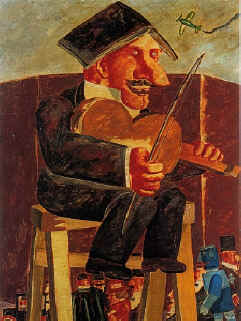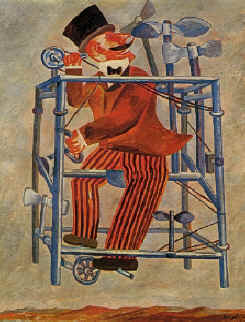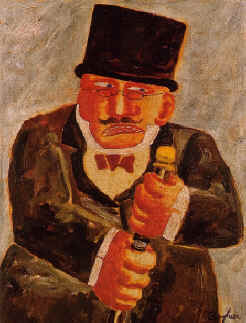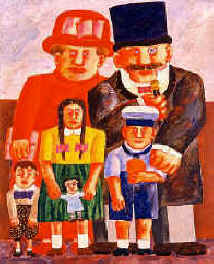
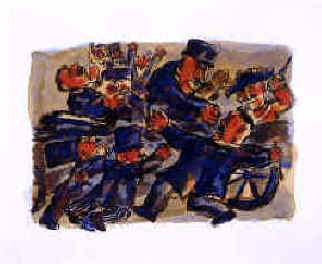
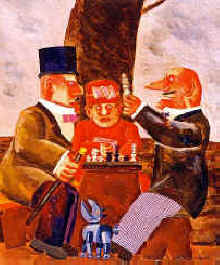
WORKS AND PRESENTATIONS
PRESENTATION
EXTRACTS FROM MONOGRAPHIES, CATALOGUES AND MAIN NEWSPAPERS
Home Page Public Exhibitions Biography Bibliography International Fairs Public Auctions
All
the works introduced in this site belong to public and private collections.



"
So, Franz Borghese as writers comes wittily up by the side of Franz Borghese
that draws, paints and sculptures, with the sneaking, however insinuating
variety of a repertory parallel to that of his images and that represents the
same world, however not subordinated to them, and neither descriptive of them.
The pages describing fragmentarily the Waterloo day through flashes and
flashbacks are not, on the whole, very long explanations of the works: they are
autonomous texts ranging from the anecdote to the portrait and the short story;
they may be similar to the cinematographic
arrangement of scenes, besides the
eighteenth and nineteenth century taste of the historical and custom
imagination. In an autobigraphical note published on the cover of one of his
monographies, the artist has synthetically declared his preferences as reader:
"Franz Borghese reads a lot, everything, but his favourite readings are
Voltaire, for whose love he detests Rousseau, and the Three Musketeers by Dumas,
which he considers immortal". That is two centuries, one drawn toward the
other, that from the tale of action and thought and the
"fiction" by Voltaire (rich of quoted and quoted again irony
and narrative schemes of the past), and through the "roman
feuilleton", nearly industrially produced by Alexandre Dumas the Father, go
to the twentieth century comics and television-tale. With the progressive
development of a language modelled on the immediate comprehensibility of what is
spoken and sold, at the opposite pole of the specialized languages for skilled
and initiated people, so, the discreet fascination of the stereotype asserts
gradually itself. Writing proceeds also through interactions with a popular
public, however with a bigger frequency avails itself of the reference to this
language for a more complicated and specific elaboration behind the apparent
simplicity: as it happens indeed in the writing and in the images of Borghese,
who (always in the above mentioned autobiographical note) has made explicit some
of his preferences also regarding some historical fantastic characters: "Among
the most famous characters he has a great regard for Napoleone and Alessandro
the Macedonian, however he prefers Frankenstein and the
Count Dracula, before all because they are imaginary." The
stereotype reveals itself as the profane question of the mass mythology.
Rome 1999
Luciano Cabutti
(Franz Borghese - Publishing House Il Tetto - Rome)
